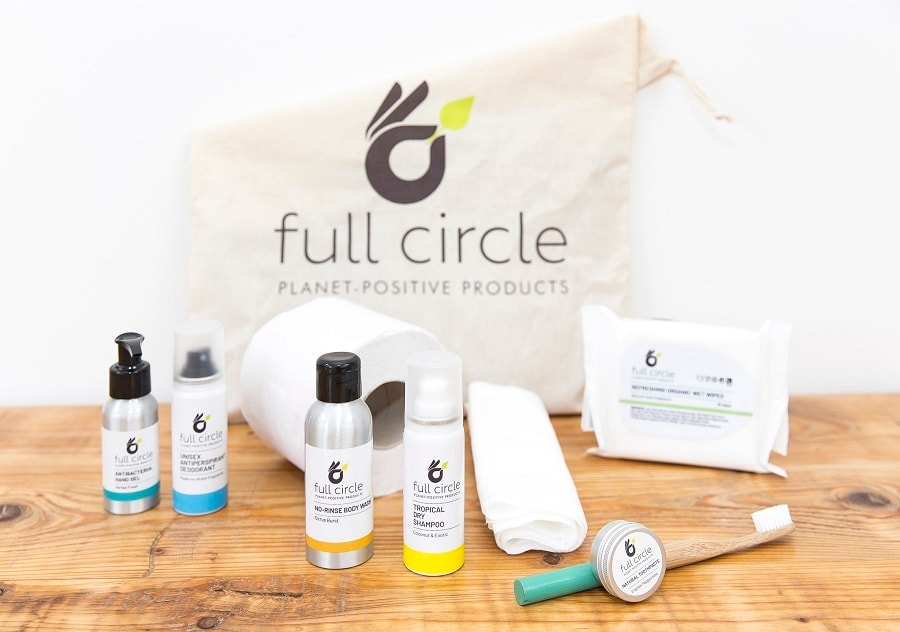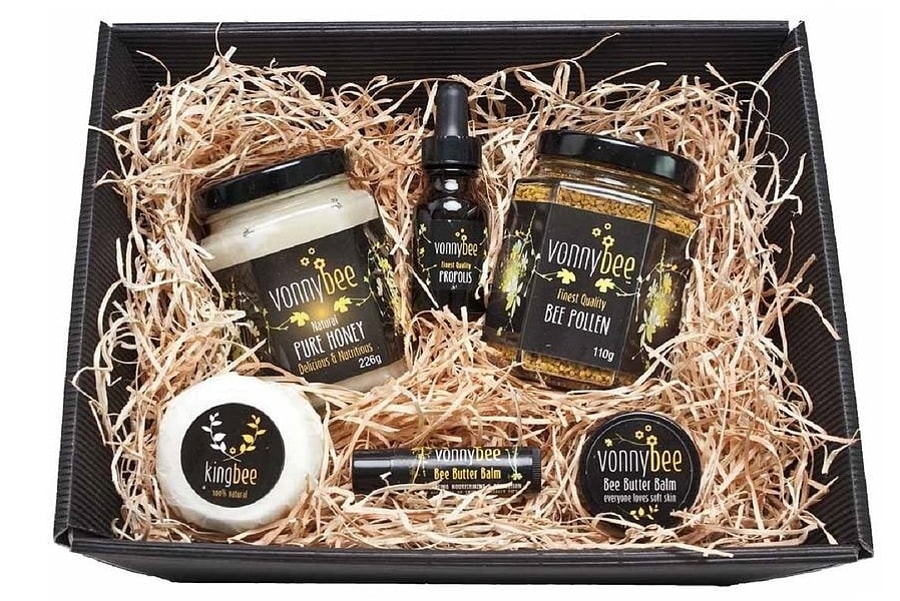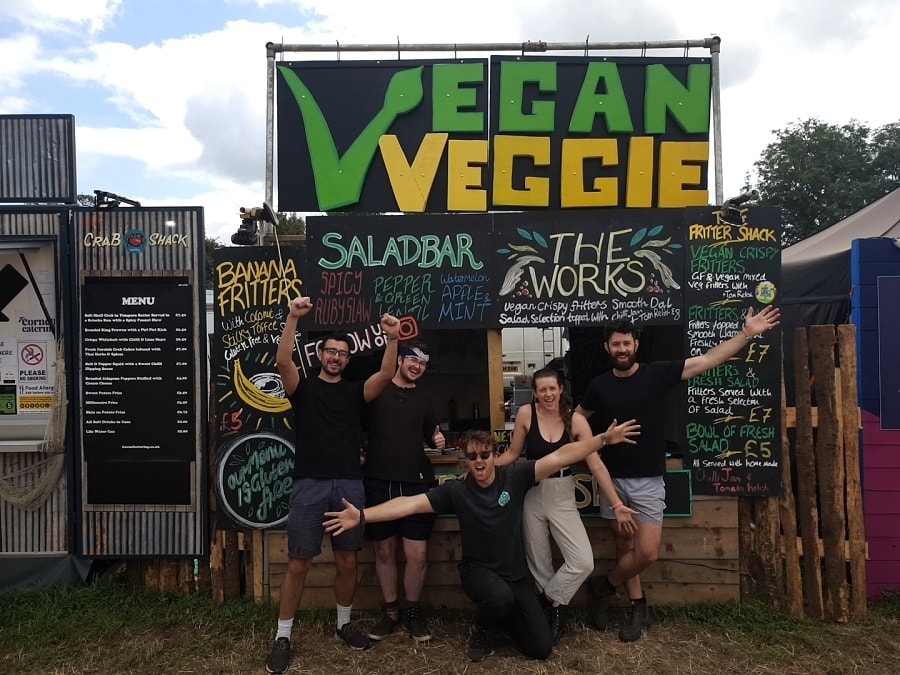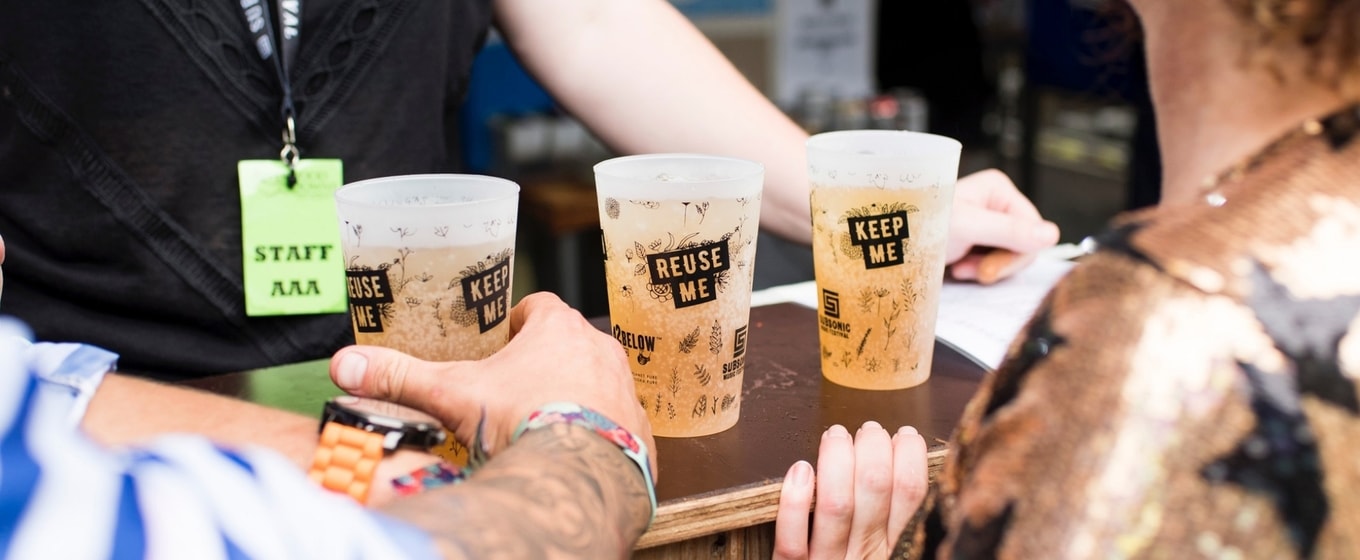In a world that’s saturated by ecommerce and digital marketing, it’s important to recognize the potential profit margins and growth opportunities that outdoor events bring to UK SMEs. With the average spend per head at independent festivals calculated at around £483, it’s clear that there’s great potential for small businesses to use these events to promote their products and reach new customers.
If this is something you're considering for your small business, we share a couple of tips on how to become a trader at a festival, along with some advice from a few small businesses who have traded at some of the biggest UK festivals.
How to be a successful festival vendor
There are several considerations to bear in mind if you’re thinking of trading at a festival or outdoor event in the UK. Here are four points to get you thinking along the right lines:
1. Trading requirements
A good place to start is by carefully reading through the trading requirements for each festival you’d like to work with, along with any application advice given by festival organizers. It may be that you need a street trading license or contactless payment facilities and card readers. If you’re a food vendor, there will be even more to prepare, such as providing copies of your Food Hygiene Trading Certificate and food business registration license. You’ll need ample time to organize this, along with getting a solid application in.
2. Competitors and USPs
Consider if any of your competitors have traded at the same event before. If so, assume there will be similar businesses trading alongside you, especially if you’re looking into being a vendor at one of the UK’s bigger festivals. To stand out, ensure you’ve thought of ways to promote your USPs and provide something different to passers-by in the form of tasters, useful festival merchandise or free samples of your products.
3. Creative engagement strategies
Consider creating a hashtag and inviting customers to share photos of your products or stand across social media. Offer a freebie to your favourite photo at the end of each day at the festival. Or, instead of handing out fliers before trading hours, offer passers-by an ink stamp which will give them a certain % off your products. This way, they’ll have a lasting reminder of your brand stamped on their person, along with a reason to come back and choose your products over that of your competitors’.
4. Sustainability
In addition to the above, consider the festival’s rules on disposables, especially if you are a food or drinks trader, or if your business relies on a lot of packaging. With more and more environmentally-conscious festivals popping up, many will state that those selling food must serve consumables on compostable materials, and that items such as fish or charcoal must be from a certified sustainable source. This may also work out to be a USP for food vendors at festivals and could work in your favour to attract environmentally-conscious customers, so be sure to shout about it if you’re going the extra mile when it comes to sustainability.

More and more UK festivals are looking for vendors who promote sustainability.
The small businesses taking festivals by storm
We’ve highlighted a handful of the small businesses who are making a name for themselves at the UK’s festival scene. Here's what trading at UK festivals has meant to their small business...
Go Full Circle
Eco-friendly festival survival kit | Featured in The Daily Telegraph
This eco-friendly festival survival kit has been a hit with environmentally-conscious festival-goers across the country. Customers receive eight products within a cotton jute bag, including antiperspirant, toothpaste, a bamboo toothbrush, a no-rinse body wash, dry shampoo, an eco-towel and even Eco-leaf toilet paper. All products within the kit are vegan-friendly, and either reusable, biodegradable or recyclable. In addition each purchase has a purpose, with the business aiming to fund 4 water projects in 2019 alone.
We spoke to Co-Founder Tim Molony about the product. Here's what he had to say:
"I think the UK has always had a strong music culture, mostly around live concerts. But, over the last 10 years festivals are offering nicer camping options with better amenities, which appeals to families and wealthier individuals (42% of attendees in 2017 were aged 35 years or older with 9.5% of attendees earning £40k+ per annum). This, in turn, generates more revenue because you can charge higher ticket prices and people spend more whilst there. This is reflected in the sector now being worth approx £2.4bn to the UK economy, and rising!
"We decided to develop an eco-friendly hygiene kit for the festival market because we saw the devastation that festivals were having on the local environment they were being hosted in. The festival market is the same as any other market in terms of launching a new product or expanding your existing customer base - there needs to be a requirement for your product within the sector, then it's just a case of understanding exactly who your customers are, identifying and using the right channels to reach them."

Eco-friendly festival survival kits for the environmentally-conscious.
Vonny Bee
Natural health & wellbeing products | Glastonbury's 2014 Gold Award for Sustainability
Vonny Bee is a small business specialising in creating 100% natural bee products for health and wellbeing. Products include skincare such as lip balms and hand butters, natural hay fever remedies, and even a selection of natural products for pets.
Along with trading online, Founder (and beekeeper) Yvonne Matthews relied on selling her products at local farmers' markets around Liverpool, until her son attended Glastonbury Music Festival in 2010 and suggested she apply for a stall. Yvonne's application was successful and the business boomed, going on to win Glastonbury's 2014 Gold Sustainable Green Traders Award. Since, Vonny Bee has pitched up at many of the biggest festivals around the world.
We spoke to Yvonne about any advice she'd give to fellow small business owners who want to make the move from being local market traders to vendors at bigger festivals. Here's what she had to say:
"If you're nervous about what to expect from your first major festival, ask the organizer if they can put you in touch with another stall that has attended the event before. They can tell you what to expect, what kind of footfall the event has and also what the demographic of the people attending is. When I was starting up, a lady I asked told me to bring ten times more stock than I would normally take to a farmers' market.
"It's also worth tweaking your products to ensure that people can easily carry them, or offering a postal service so that the goodies they purchase can meet them when they get home. We sell Bee Pollen which is fantastic at fixing hayfever. During the festivals people came in suffering terribly, they wanted to purchase just enough to get them through the weekend. So we made pouches with just enough for the weekend. They were a great success and everyone was able to dance hayfever-free.
"One final practical tip: before going to an event I set the whole stall up in my back garden and invite all my friends for a pre-festival bash! This enables us to see what it will be like and realize what else we needed to take. In fact, one of the best practical tips I can share is to get a roll of plastic from a garden centre (the type that you use before you put bark or pebbles down in the garden). Put it down in your stall as a temporary floor covering - it stops the ground going to mud, it also stops dust coming up on your products!"

Including natural propolis, lip balm and a bee butter balm.
The Fritter Shack
Wholesome Veggie & Vegan Food | Glastonbury’s Most Sustainable Food Trader 2017
This family business offers deliciously fresh and healthy food, with a focus on gluten-free, vegetarian and vegan dishes. Based in Wales, The Fritter Shack are now seasoned pros at providing food to festival-goers around the UK, bringing creativity and uniqueness to each event they attend. Along with serving up mouthwatering dishes such as crispy fritters and fresh salads, the team also go the extra mile when it comes to promoting sustainability; their setup is mainly solar powered, and their stall is made from reclaimed materials. In addition, they even run their vehicles on biofuel.
We spoke to The Fritter Shack's Frazer Jones about his experience working with UK festivals:
"The UK festival industry has exploded over the past decade. And the sheer volume of festivals means that only the well-run and quality ones stand the test of time. As a result we’re seeing more and more festivals focusing their efforts on running a quality event including the setting, food, performances and infrastructure that will convince festival goers (general public & traders) to choose them over competitors.
"Festivals are greatly supportive of traders and all of the people that contribute to their success. Through awards and incentives they help us improve our business and product, in turn benefiting the festival in the long run. We heavily emphasize running our business sustainably and winning awards for it at Glastonbury and Hay Festival has greatly helped raise our profile.
"Our family personally chose festival catering as it offers us a flexible way in which to pursue our passion, which is food! If I could offer one piece of advice for anyone wanting to start in the festival business: focus on your product and create something the customer with love and then build the branding around it."

Wholesome dishes to keep you dancing all festival-long.
If you've enjoyed our article and want to know more about becoming a trader at a UK festival, take a look at our recent guide to branding your SME at a festival.
Whether you’re just starting out or scaling up, festival trading can be a brilliant way to road-test your products, connect with new audiences, and build a loyal following. It’s a high-energy environment full of opportunity – but it also comes with upfront costs and logistical challenges that small business owners need to plan for.
Ready to take your business on the road (or field!)? Fleximize offers fast, flexible business loans designed for growing SMEs. Learn more about how our funding could support your next big event.






These cookies are set by a range of social media services that we have added to the site to enable you to share our content with your friends and networks. They are capable of tracking your browser across other sites and building up a profile of your interests. This may impact the content and messages you see on other websites you visit.
If you do not allow these cookies you may not be able to use or see these sharing tools.